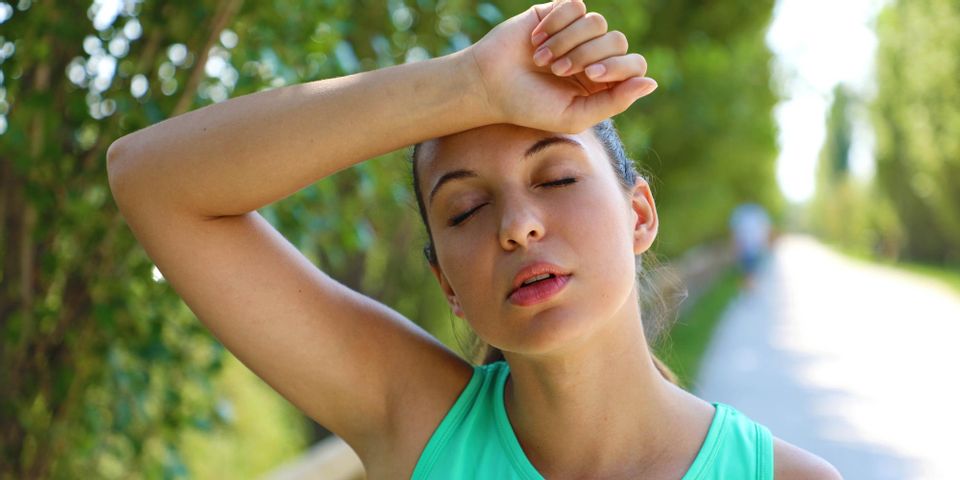A Guide to Treating & Preventing Heat Exhaustion

The heat index is no laughing matter during Southern summers. Even those who regularly spend time exercising, working, and generally hanging outside are at risk of heat exhaustion and could end up needing emergency care this time of the year.
What Is Heat Exhaustion?
Your core temperature normally sits at approximately 98.6 degrees Fahrenheit. When exposed to high environmental temperatures, your body temperature will start to increase, especially if the heat is combined with humidity and physical activity.
If your body is unable to regulate its temperature, and it continues to climb, you could experience heat illness. Typically, heat illness starts with heat cramping but will progress to heat exhaustion if the core body temperature reaches 104 degrees Fahrenheit or higher. Fortunately, heat exhaustion is treatable when symptoms are noticed before they can exacerbate to heatstroke — a severe condition that can damage the brain and other vital organs and possibly lead to death.
What Are the Symptoms & Treatment for Heat Exhaustion?
 The body will start sweating when it is overheating to try and regulate its temperature. If it has reached heat exhaustion, sweating will most likely be heavier than normal. While you might feel drenched, the moisture will feel cool and produce goosebumps even in extreme heat. These symptoms could also be accompanied by a weak and rapid pulse, faintness, dizziness, fatigue, muscle cramps, and low blood pressure upon standing. You might also start to feel nauseous and develop a headache.
The body will start sweating when it is overheating to try and regulate its temperature. If it has reached heat exhaustion, sweating will most likely be heavier than normal. While you might feel drenched, the moisture will feel cool and produce goosebumps even in extreme heat. These symptoms could also be accompanied by a weak and rapid pulse, faintness, dizziness, fatigue, muscle cramps, and low blood pressure upon standing. You might also start to feel nauseous and develop a headache.
If you start experiencing heat exhaustion symptoms, stop all activity, and move to a cooler location and rest. Also, drink some cool water or a sports drink containing electrolytes. If symptoms don’t improve or if you are feeling confused or agitated and are unable to drink, seek out emergency care immediately.
How Can You Prevent Heat Exhaustion?
Before heading outside on hot, humid days, put on loose-fitting, lightweight clothing made of breathable materials. Also, protect against sunburns, which makes it difficult for the body to cool itself by wearing sunscreen, wide-brimmed hats, and sunglasses. Bring extra bottles of water or sports drinks with you to stay properly hydrated.
If you are taking medications, find out if they can affect hydration and heat dissipation. When possible, avoid the hottest parts of the day and limit strenuous activities to the morning and evening hours. If you’re not used to the heat in the area, limit outside time until your body has acclimated to the changes. Also, whenever the heat index is over 91 degrees Fahrenheit, take extra precautions to stay safe.
If you are experiencing heat exhaustion symptoms and in need of emergency care, trust the team at Robertsdale Urgent Care in Robertsdale, AL, to provide you with prompt and reliable treatment. This medical clinic is headed by qualified provider Amy Younce, MSN, RN, CRNP, FNP-C, AGACNP-BC, who has six years of emergency medicine and trauma surgery. Visit their website to learn more about the healthcare services they provide or call them today at (251) 947-3591.
About the Business
Have a question? Ask the experts!
Send your question

